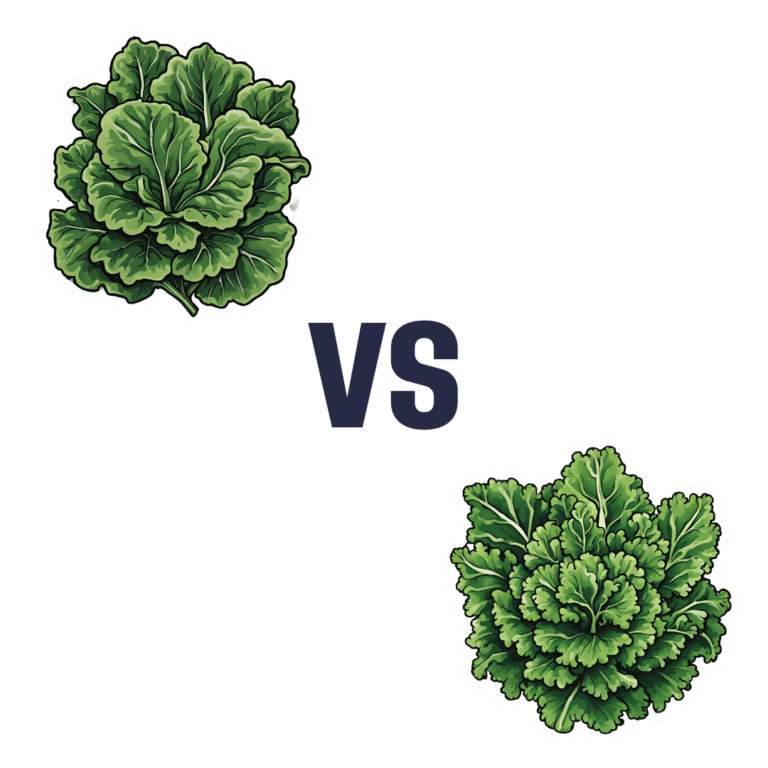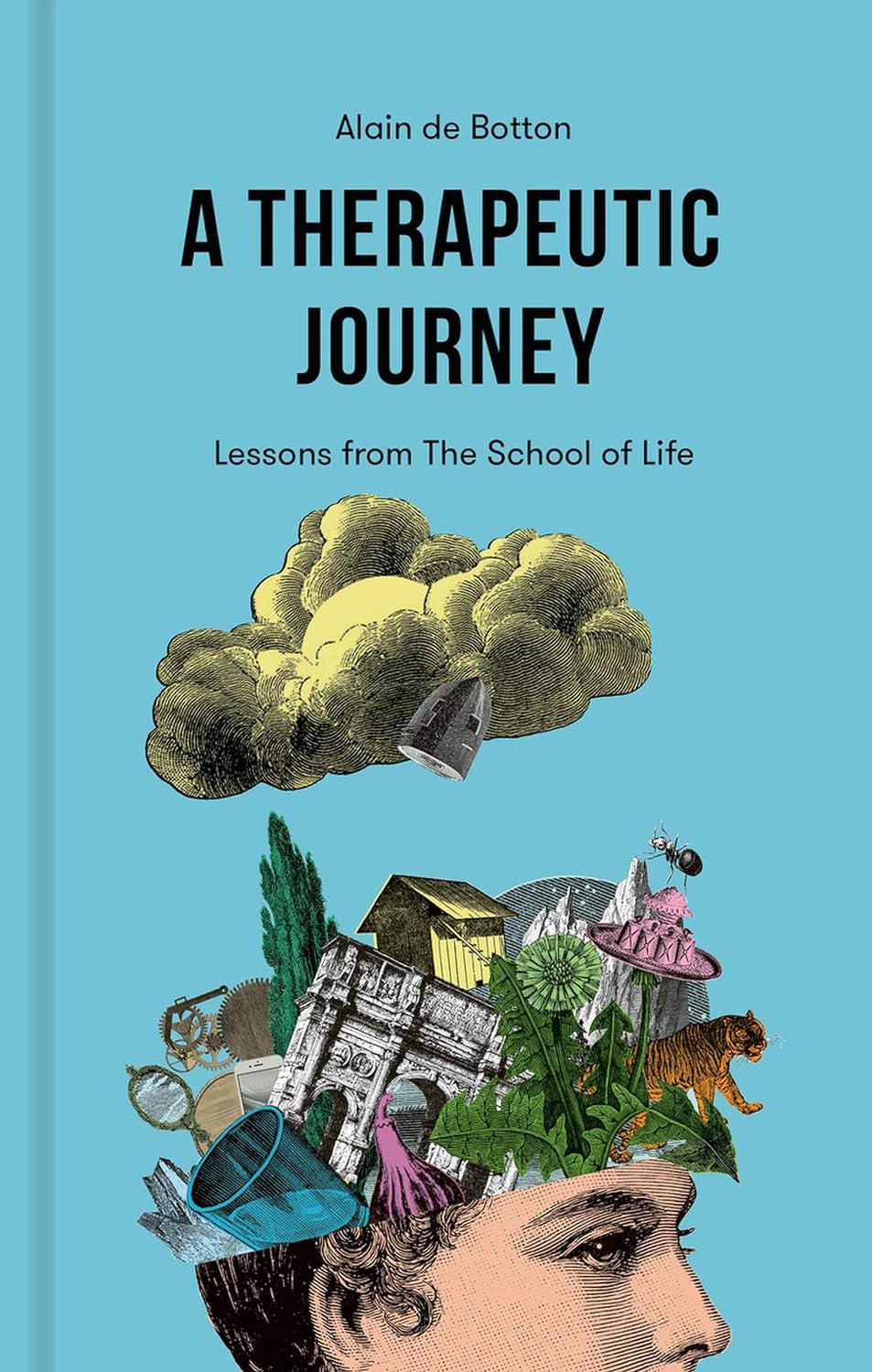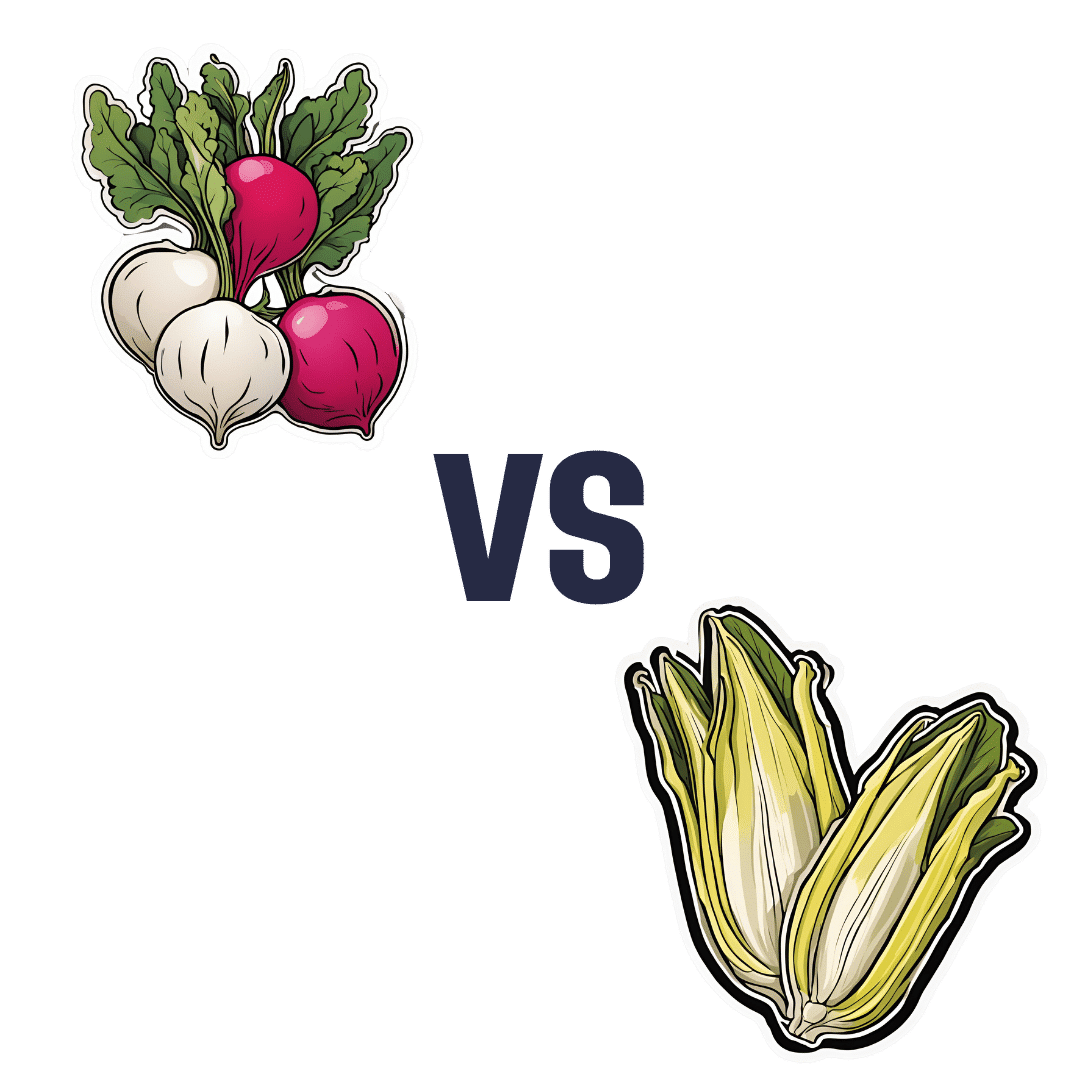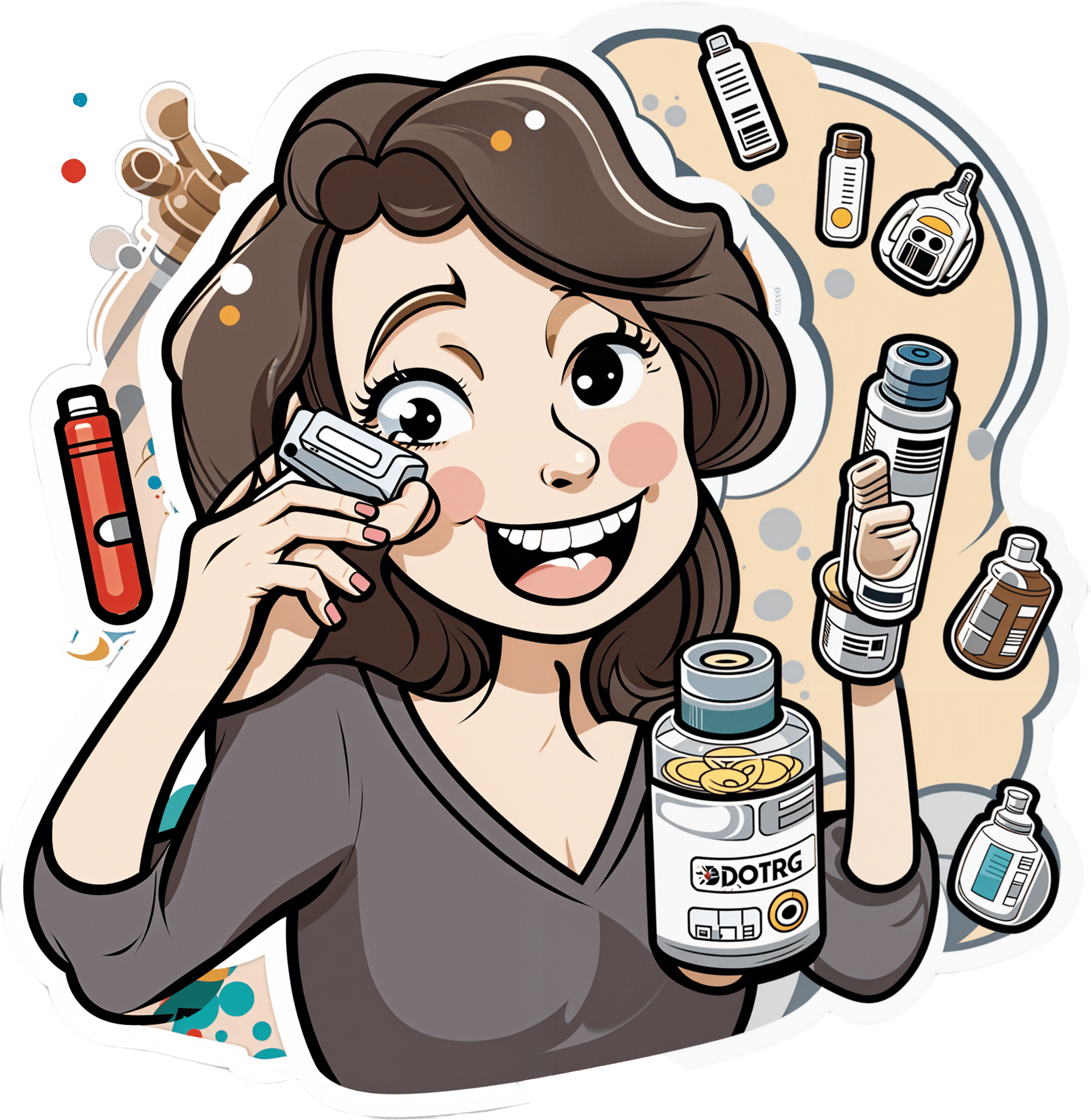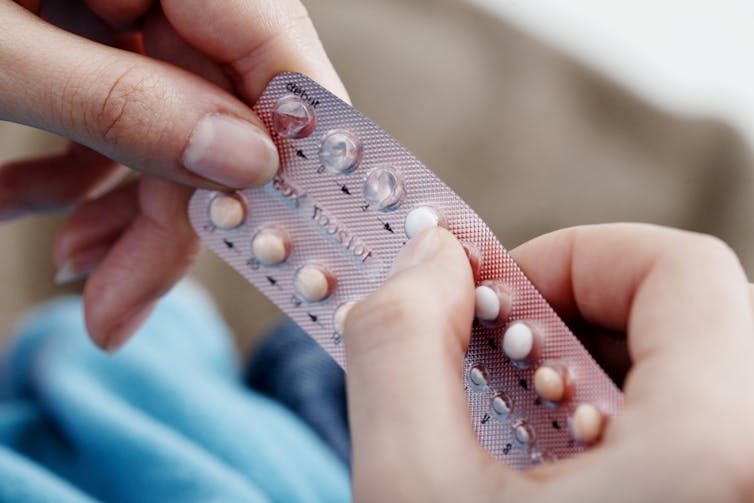
Apples vs Carrots – Which is Healthier?
10almonds is reader-supported. We may, at no cost to you, receive a portion of sales if you purchase a product through a link in this article.
Our Verdict
When comparing apples to carrots, we picked the carrots.
Why?
Both are sweet crunchy snacks, both rightly considered very healthy options, but one comes out clearly on top…
Both contain lots of antioxidants, albeit mostly different ones. They’re both good for this.
Looking at their macros, however, apples have more carbs while carrots have more fiber. The carb:fiber ratio in apples is already sufficient to make them very healthy, but carrots do win.
In the category of vitamins, carrots have many times more of vitamins A, B1, B2, B3, B5, B6, B9, C, E, K, and choline. Apples are not higher in any vitamins.
In terms of minerals, carrots have a lot more calcium, copper, iron, magnesium, manganese, phosphorus, potassium, selenium, and zinc. Apples are not higher in any minerals.
If “an apple a day keeps the doctor away”, what might a carrot a day do?
Want to learn more?
You might like to read:
Sugar: From Apples to Bees, and High-Fructose C’s
Take care!
Don’t Forget…
Did you arrive here from our newsletter? Don’t forget to return to the email to continue learning!
Recommended
Learn to Age Gracefully
Join the 98k+ American women taking control of their health & aging with our 100% free (and fun!) daily emails:
-
Four Habits That Drastically Improve Mobility
10almonds is reader-supported. We may, at no cost to you, receive a portion of sales if you purchase a product through a link in this article.
Mobility is critical for health living, but stretching isn’t the entire story:
Beyond just stretching
Liv Townsend, of LivInLeggings fames, recommends these four habits:
- Sit less: prolonged sitting affects hip and shoulder mobility. Specifically, it affects it negatively. It is also a bringer of woe in many other ways beyond the scope of what we’re doing here today, but the important thing for mobility is to sit less. So, if you spent a lot of time at a desk, invest in a standing desk (writer’s note: I dearly love mine, which is technically a sit-stand converter like this one on Amazon but I just keep it in the up position all the time, so it’s easy to forget it has multiple settings. Anyway, it’s sooooooo much better for my back than sitting for hours at a time.). For how to deal with other (i.e. not desk-related) reasons you might be sitting a lot, check out: Stand Up For Your Health (Or Don’t*)
- Take creatine: more than just for strength and muscle-building (and even aside from its brain-benefits that it bestows to older people, but not young ones), creatine also supports mobility and flexibility. Any brand is fine, so long as creatine monohydrate is the sole ingredient. Also, micronized or not is also fine—that’s just to do with whether it’s been pre-compacted into super-tiny beads (so small that it will still effectively be a powder), which helps it to avoid clumping when mixed in a liquid, that’s all. It shouldn’t have any additives either way (so, check labels to ensure it doesn’t).
- Spend more time under tension: no, we’re not talking about texting your spouse “we need to talk”, but rather, this means that when we do stretch, we should spend longer in the stretched position. While dynamic stretching has its place, passive stretching (holding stretches for longer periods) is essential and shouldn’t be overlooked.
- Incorporate “movement snacks”: this is about when we are going about our daily life, we should move more while doing everyday tasks. Get in some shoulder stretches while waiting for the kettle to boil, deep squat while petting the dog, etc. These are very important, because mobility is very much a “use it or lose it” thing, and so moving in many different ways, frequently, is the only way to ensure full coverage (no stretching regimen is going to be able to cover the many compound movements that we do in everyday life).
*That article also covers how to avoid the damage of sitting even if you cannot physically stand!
For more on all of these, enjoy:
Click Here If The Embedded Video Doesn’t Load Automatically!
Want to learn more?
You might also like to read:
Mobility As Though A Sporting Pursuit: Train For The Event Of Your Life!
Take care!
Share This Post
-
A Therapeutic Journey – by Alain de Botton
10almonds is reader-supported. We may, at no cost to you, receive a portion of sales if you purchase a product through a link in this article.
We’ve often featured The School of Life’s videos here on 10almonds, and most of those are written by (and often voiced by) Alain de Botton.
This book lays out the case for mental health being also just health, that no person is perfectly healthy all the time, and sometimes we all need a little help. While he does suggest seeking help from reliable outside sources, he also tells a lot about how we can improve things for ourselves along the way, whether by what we can control in our environment, or just what’s between our ears.
In the category of limitations, the book is written with the assumption that you are in a position to have access to a therapist of your choice, and in a sufficiently safe and stable life situation that there is a limit to how bad things can get.
The style is… Alain de Botton’s usual style. Well-written, clear, decisive, instructive, compassionate, insightful, thought-provoking.
Bottom line: this isn’t a book for absolutely everyone, but if your problems are moderate and your resources are comfortable, then this book has a lot of insights that can make your life more easy-going and joyful, without dropping the seriousness when appropriate.
Click here to check out A Therapeutic Journey, and perhaps begin one of your own!
Share This Post
-
Ruminating vs Processing
10almonds is reader-supported. We may, at no cost to you, receive a portion of sales if you purchase a product through a link in this article.
When it comes to traumatic experiences, there are two common pieces of advice for being able to move forwards functionally:
- Process whatever thoughts and feelings you need to process
- Do not ruminate
The latter can seem, at first glance, a lot like the former. So, how to tell them apart, and how to do one without the other?
Getting tense
One major difference between the two is the tense in which our mental activity takes place:
- processing starts with the traumatic event (or perhaps even the events leading up to the traumatic event), analyses what happened and if possible why, and then asks the question “ok, what now?” and begins work on laying out a path for the future.
- rumination starts with the traumatic event (or perhaps even the events leading up to the traumatic event), analyses what happened and if why, oh why oh why, “I was such an idiot, if only I had…” and gets trapped in a fairly tight (and destructive*) cycle of blame and shame/anger, never straying far from the events in question.
*this may be directly self-destructive, but it can also sometimes be only indirectly self-destructive, for example if the blame and anger is consciously placed with someone else.
This idea fits in, by the way, with Dr. Elisabeth Kübler-Ross’s “five stages of grief” model; rumination here represents the stages “bargaining”, “despair”, and “anger”, while emotional processing here represents the stage “acceptance”. Thus, it may be that rumination does have a place in the overall process—just don’t get stuck there!
For more on healthily processing grief specifically:
What Grief Does To The Body (And How To Manage It)
Grief, by the way, can be about more than the loss of a loved one; a very similar process can play out with many other kinds of unwanted life changes too.
What are the results?
Another way to tell them apart is to look at the results of each. If you come out of a long rumination session feeling worse than when you started, it’s highly unlikely that you just stopped too soon and were on the verge of some great breakthrough. It’s possible! But not likely.
- Processing may be uncomfortable at first, and if it’s something you’ve ignored for a long time, that could be very uncomfortable at first, but there should quite soon be some “light at the end of the tunnel”. Perhaps not even because a solution seems near, but because your mind and body recognize “aha, we are doing something about it now, and thus may find a better way forward”.
- Rumination tends to intensify and prolong uncomfortable emotions, increases stress and anxiety, and likely disrupts sleep. At best, it may serve as a tipping point to seek therapy or even just recognize “I should figure out a way to deal with this, because this isn’t doing me any good”. At worst, it may serve as a tipping point to depression, and/or substance abuse, and/or suicidality.
See also: How To Stay Alive (When You Really Don’t Want To) ← which also has a link back to our article on managing depression, by the way!
Did you choose it, really?
A third way to tell them apart is the level of conscious decision that went into doing it.
- Processing is almost always something that one decides “ok, let’s figure this out”, and sits down to figure it out.
- Rumination tends to be about as voluntary as social media doomscrolling. Technically we may have decided to begin it (we also might not have made any conscious decision, and just acted on impulse), but let’s face it, our hands weren’t at the wheel for long, at all.
A good way to make sure that it is a conscious process, is to schedule time for it in advance, and then do it only during that time. If thoughts about it come up at other times, tell yourself “no, leave that for later”, and then deal with it when (and only when) the planned timeslot arrives.
It’s up to you and your schedule what time you pick, but if you’re unsure, consider an hour in the early evening. That means that the business of the day is behind you, but it’s also not right before bed, so you should have some decompression time as a buffer. So for example, perhaps after dinner you might set a timer* for an hour, and sit down to journal, brainstorm, or just plain think, about the matter that needs processing.
*electronic timers can be quite jarring, and may distract you while waiting for the beeps. So, consider investing in a relaxing sand timer like this one instead.
Is there any way to make rumination less bad?
As we mentioned up top, there’s a case to be made for “rumination is an early part of the process that gets us where we need to go, and may not be skippable, or may not be advisable to skip”.
So, if you are going to ruminate, then firstly, we recommend again bordering it timewise (with a timer as above) and having a plan to pull yourself out when you’re done rather than getting stuck there (such as: The Off-Button For Your Brain: How To Stop Negative Thought Spirals).
And secondly, you might want to consider the following technique, which allows one to let one’s brain know that the thing we’re thinking about / imagining is now to be filed away safely; not lost or erased, but sent to the same place that nightmares go after we wake up:
A Surprisingly Powerful Tool: Eye Movement Desensitization & Reprocessing (EMDR)
What if I actually do want to forget?
That’s not usually recommendable; consider talking it through with a therapist first. However, for your interest, there is a way:
The Dark Side Of Memory (And How To Forget)
Take care!
Share This Post
Related Posts
-
Radishes vs Endives – Which is Healthier?
10almonds is reader-supported. We may, at no cost to you, receive a portion of sales if you purchase a product through a link in this article.
Our Verdict
When comparing radishes to endives, we picked the endives.
Why?
These are both great, but there’s a clear winner here in every category!
In terms of macros, radishes have more carbs while endives have more fiber and protein.
In the category of vitamins, radishes have more of vitamins B6 and C, while endives have more of vitamins A, B1, B2, B4, B5, B7, B9, E, K, and choline.
When it comes to minerals, things are not less one-sided: radishes have more selenium, while endives have more calcium, copper, iron, magnesium, manganese, phosphorus, potassium, and zinc.
You may be thinking: but what about radishes’ shiny red bit? Doesn’t that usually mean more of something important, like carotenoids or anthocyanins or something? And the answer is that the red pigment in radishes is so thinly-distributed on the exterior that it’s barely there and if we’re looking at values per 100g, it’s a tiny fraction of a tiny fraction.
In both cases, their bitter taste comes mostly from flavonols, of which mostly kaempferol, of which endives have about 20x what radishes have, on average.
All in all, an overwhelming win for endives.
Want to learn more?
You might like to read:
Enjoy Bitter Foods For Your Heart & Brain
Take care!
Don’t Forget…
Did you arrive here from our newsletter? Don’t forget to return to the email to continue learning!
Learn to Age Gracefully
Join the 98k+ American women taking control of their health & aging with our 100% free (and fun!) daily emails:
-
What is Ryeqo, the recently approved medicine for endometriosis?
10almonds is reader-supported. We may, at no cost to you, receive a portion of sales if you purchase a product through a link in this article.
For women diagnosed with endometriosis it is often a long sentence of chronic pain and cramping that impacts their daily life. It is a condition that is both difficult to diagnose and treat, with many women needing either surgery or regular medication.
A medicine called Ryeqo has just been approved for marketing specifically for endometriosis, although it was already available in Australia to treat a different condition.
Women who want the drug will need to consult their local doctor and, as it is not yet on the Pharmaceutical Benefits Scheme, they will need to pay the full cost of the script.
What does Ryeqo do?
Endometriosis affects 14% of women of reproductive age. While we don’t have a full understanding of the cause, the evidence suggests it’s due to body tissue that is similar to the lining of the uterus (called the endometrium) growing outside the uterus. This causes pain and inflammation, which reduces quality of life and can also affect fertility.
Ryeqo is a tablet containing three different active ingredients: relugolix, estradiol and norethisterone.
Relugolix is a drug that blocks a particular peptide from releasing other hormones. It is also used in the treatment of prostate cancer. Estradiol is a naturally occurring oestrogen hormone in women that helps regulate the menstrual cycle and is used in menopausal hormone therapy. Norethisterone is a synthetic hormone commonly used in birth control medications and to delay menstruation and help with heavy menstrual bleeding.
All three components work together to regulate the levels of oestrogen and progesterone in the body that contribute to endometriosis, alleviating its symptoms.
Relugolix reduces the overall levels of oestrogen and progesterone in the body. The estradiol compensates for the loss of oestrogen because low oestrogen levels can cause hot flushes (also called hot flashes) and bone density loss. And norethisterone blocks the effects of estradiol on the uterus (where too much tissue growth is unwanted).
Is it really new?
The maker of Ryeqo claims it is the first new drug for endometriosis in Australia in 13 years.
But individually, all three active ingredients in Ryeqo have been in use since 2019 or earlier.
Ryeqo has been available in Australia since 2022, but until now was not specifically indicated for endometriosis. It was originally approved for the treatment of uterine fibroids, which share some common symptoms with endometriosis and have related causes.
In addition to Ryeqo, current medical guidance lists other drugs that are suitable for endometriosis and some reformulations of these have also only been recently approved.
The oral medicine Dienogest was approved in 2021, and there have been a number of injectable drugs for endometriosis recently approved, such as Sayana Press which was approved in a smaller dose form for self-injection in 2023.
You can’t take the contraceptive pill with Ryeqo but the endometriosis drug could replace it.
ShutterstockHow to take it and what not to do
Ryeqo is a once-a-day tablet. You can take it with, or without food, but it should be taken about the same time each day.
It is recommended you start taking Ryeqo within the first five days after the start of your next period. If you start at another time during your period, you may experience initial irregular or heavier bleeding.
Because it contains both synthetic and natural hormones, you can’t use the contraceptive pill and Ryeqo together. However, because Ryeqo does contain norethisterone it can be used as your contraception, although it will take at least one month of use to be effective. So, if you are on Ryeqo, you should use a non-hormonal contraceptive – such as condoms – for a month when starting the medicine.
Ryeqo may be incompatible with other medicines. It might not be suitable for you if you take medicines for epilepsy, HIV and AIDS, hepatitis C, fungal or bacterial infections, high blood pressure, irregular heartbeat, angina (chest pain), or organ rejection. You should also not take Ryeqo if you have a liver tumour or liver disease.
The possible side effects of Ryeqo are similar to those of oral contraceptives. Blood clots are a risk with any medicine that contains an oestrogen or a progestogen, which Ryeqo does. Other potential side effects include bone loss, a reduction in menstrual blood loss or loss of your period.
It’s costly for now
Ryeqo can now be prescribed in Australia, so you should discuss whether Ryeqo is right for you with the doctor you usually consult for your endometriosis.
While the maker has made a submission to the Pharmaceutical Benefits Advisory Committee, it is not yet subsidised by the Australian government. This means that rather than paying the normal PBS price of up to A$31.60, it has been reported it may cost as much as $135 for a one-month supply. The committee will make a decision on whether to subsidise Ryeqo at its meeting next month.
Correction: this article has been updated to clarify the recent approval of specific formulations of drugs for endometriosis.
Nial Wheate, Associate Professor of the School of Pharmacy, University of Sydney and Jasmine Lee, Pharmacist and PhD Candidate, University of Sydney
This article is republished from The Conversation under a Creative Commons license. Read the original article.
Don’t Forget…
Did you arrive here from our newsletter? Don’t forget to return to the email to continue learning!
Learn to Age Gracefully
Join the 98k+ American women taking control of their health & aging with our 100% free (and fun!) daily emails:
-
The Gym For Your Mental Health
10almonds is reader-supported. We may, at no cost to you, receive a portion of sales if you purchase a product through a link in this article.
Getting The Most Out Of Therapy
If you’ve never had therapy, what image do you have of it? Perhaps you imagine a bearded and bespectacled man in a suit, impassively making notes on a clipboard. Perhaps you imagine an empathetic woman, with tissues and camomile tea on standby.
The reality is: the experience of therapy can vary, a lot.
In its results, too! Sometimes we may try therapy and think “well that was a waste of time and money”. Sometimes we may try therapy and it’ll change our life.
So… Is there any way to make it less of a lottery?
First: knowledge is power
And while the therapist-client relationship certainly shouldn’t be a power struggle, you do want to be empowered.
So, read about different styles of therapy, and also, read some how-to guides for self-therapy. We’ve recommended some before in previous editions of 10almonds; you can check those books out here:
- How to Be Your Own Therapist: Boost your mood and reduce your anxiety in 10 minutes a day – by Owen O’Kane
- You Are the One You’ve Been Waiting For: Applying Internal Family Systems to Intimate Relationships – by Dr. Richard Schwartz
- DBT Made Simple: A Step-by-Step Guide to Dialectical Behavior Therapy – by Sheri van Dijk
- How to Do the Work: Recognize Your Patterns, Heal from Your Past, and Create Your Self – by Dr. Nicole LaPera
This will serve two purposes:
- You’ll know what to expect out of a therapist
- You can more efficiently “get to work” in therapy
It also, of course, could help you already, without even going to therapy!
Second: begin with the end in mind
A person who does not know what they want to get out of therapy, will likely not get much out of therapy. Or rather, their first task will be to figure that out. So, figure it out in advance, if you can.
Maybe you have a problem that has a specific name, for example poor self-esteem, anxiety, stress, depression, trauma, neuroticism, phobia, etc.
This isn’t Alcoholics Anonymous, and in this case you don’t want a lifetime of “Hello, my name is ______ and I have ______”, if you can help it.
So, what do you want?
- Maybe you want to be able to go to social events without feeling anxious
- Maybe you want your relationship(s) to be more secure and fulfilling
- Maybe you want to no longer have nightmares about that traumatic thing
- Maybe you want to be able to greet each day’s tasks with confidence and without overwhelm
…etc.
A good therapist will help you to set such goals (if you haven’t already), and attain them.
If you’re going the self-therapy route, then this is your job now!
It will probably start with the question: imagine that everything currently troubling you is now healed.
What would that look like, to you?
Third: get a good match for you
Unless you are going entirely the self-therapy route (which can work for some), you will want a therapist who’s a good match for you.
It may take a degree of “suck it and see” trial runs before you find the right one, but that takes time and money, so you’ll want to streamline the process as much as you can. If you do this well, you may be able to find a good therapist for you first time.
For this, personal recommendations (such as from friends) may help more than exmaining academic and institutional affiliations.
Yes, you want a well-qualified therapist who is a member in good standing of a respectable regulated body… but whether your therapist is easy for you to “get on with” will matter at least as much as whether their approach is psychodynamic, or 4th wave CBT, or IFS, or whatever seems popular in your time and place.
Bear in mind:
- Some therapists are specialized in helping with some kinds of things and not others. It will obviously help if the therapist you choose is specialized in the thing you are seeking help for.
- Some therapists may be able to relate to you better (or not), based on simple factors of who they are. To this end, while your therapist certainly doesn’t have to be a mirror image of you, factors like age, gender, race, etc can be relevant and may be worth considering, depending on what you are seeking help with, and what factors impact that thing.
Prefer keeping things to yourself?
Therapy isn’t for everyone, but having a good relationship with oneself definitely is. You might want to invest in one of the books whose reviews we linked above, and you might also get value from previous Psychology Sunday articles, which you can find in our archive (every seventh edition here has a Psychology Sunday main feature):
Click Here To Check Out The 10almonds Archive
To borrow the catchphrase of Dr. Kirk Honda (a therapist and therapy educator with decades of experience):
❝Take care of yourself, because you deserve it; you really, really do.❞
Don’t Forget…
Did you arrive here from our newsletter? Don’t forget to return to the email to continue learning!
Learn to Age Gracefully
Join the 98k+ American women taking control of their health & aging with our 100% free (and fun!) daily emails:

